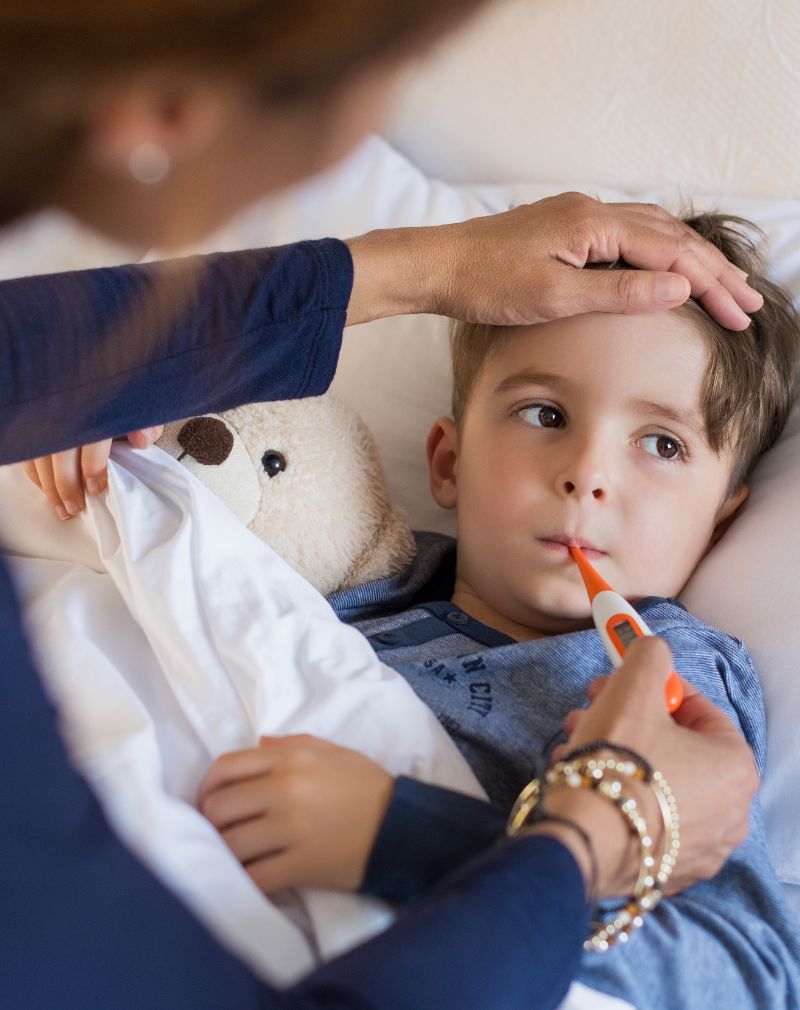Dehydration in children is a significant health concern worldwide, especially considering their higher risk compared to adults. Recognizing the symptoms, understanding the diagnosis, and knowing the appropriate treatment can make a significant difference. Furthermore, learning prevention strategies can help avoid this potentially dangerous condition.
What is Dehydration?
Dehydration occurs when the body loses more fluids than it takes in, disrupting the balance of minerals (electrolytes) that help the body function. Children, particularly infants and toddlers, are at a higher risk due to their smaller body weight and rapid metabolic rate.
What are the Symptoms of Dehydration in Children?
Recognizing the signs of dehydration in children is the first step in addressing this issue. These can range from mild to severe and may include:
- Dry or sticky mouth
- Few or no tears when crying
- Sunken eyes or cheeks
- Excessive sleepiness, lack of energy, or irritability
- Fewer wet diapers or decreased urination
- Sunken soft spot on the top of the head (in infants)
- Dry and cool skin
- Thirst
These signs can progress to severe dehydration if not addressed immediately. Symptoms of severe dehydration include:
- Extreme fussiness or sleepiness
- Very dry mouth, skin, and mucous membranes
- Little or no urination
- Sunken eyes, cheeks, and soft spot on a baby’s head
- Rapid breathing and heartbeat
- Dizziness or fainting
Who do we Diagnose Dehydration in Children?
Diagnosis of dehydration involves a thorough physical examination and medical history. Our Pediatrician may check signs like the child’s level of alertness, appearance of eyes, dryness of mouth and tongue, heart rate, breathing rate, and the elasticity of the skin. They may also assess the frequency of urination and the color and concentration of urine.
In severe cases, blood tests may be done to check electrolyte levels and kidney function, and a urine test may be done to determine the severity of dehydration.
What is the Treatment Plan for Dehydration?
The treatment of dehydration aims to replace lost fluids and electrolytes. For mild to moderate dehydration, oral rehydration is typically recommended. This involves drinking fluids that contain water, salts, and sugar, which can be found in commercial rehydration solutions.
In cases of severe dehydration, intravenous (IV) fluid treatment may be necessary. This involves replenishing fluids directly into a vein, typically in a hospital setting.
Dangers of Dehydration in Children
The body needs the right balance of fluids and electrolytes to function correctly. In very severe dehydration, can lead to serious complications, including:
- Heat injury: During hot weather and exercise, dehydration increases the risk of heat exhaustion and heatstroke.
- Urinary and kidney problems: Prolonged or repeated bouts of dehydration can cause urinary tract infections, kidney stones, and even kidney failure.
- Seizures: Electrolytes help carry electrical signals from cell to cell. When they are out of balance, it may lead to involuntary muscle contractions and even loss of consciousness.
- Low blood volume shock (hypovolemic shock): This life-threatening condition can occur when low blood volume causes a drop in blood pressure and a drop in the amount of oxygen in the body.
Tips to Avoid Dehydration in Children
Prevention is key when it comes to dehydration. Here are some strategies for parents to follow:
- Ensure regular fluid intake: Encourage your child to drink plenty of fluids, especially during hot weather or when they’re physically active.
- Recognize the need for more fluids: Illnesses involving fever, vomiting, or diarrhoea require increased fluid intake. In these cases, consider using oral rehydration solutions.
Dehydration in children, characterized by the body losing more fluids than it takes in, can have serious consequences. Recognizing early symptoms such as dry mouth, decreased urination, and irritability is crucial. Treatment varies from oral rehydration for mild cases to intravenous fluids for severe dehydration. Prevention involves ensuring adequate fluid intake, especially during illness or in hot weather. Parents should monitor their children’s hydration and seek medical advice when necessary to prevent complications like heat injury, kidney problems, and seizures.
Nestled in Dubai Healthcare City, the American Wellness Center stands as a beacon of comprehensive healthcare, blending medical and mental health services seamlessly. Offering Nurturing Pediatric Needs, their cadre of seasoned professionals is dedicated to fostering an environment where quality care leads to improved well-being for both individuals and families in the heart of Dubai.



